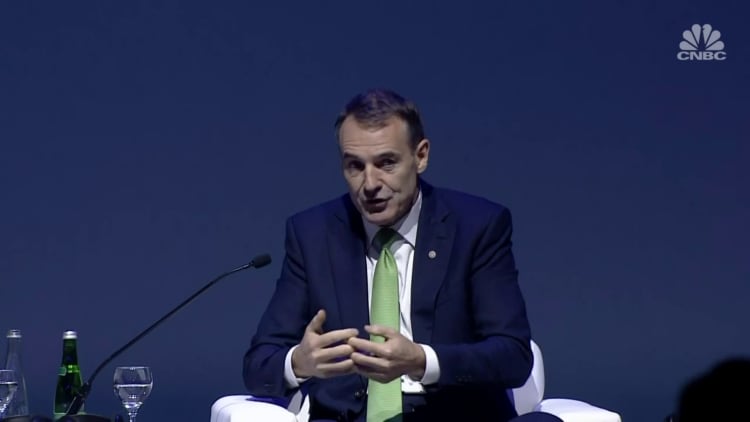Solar panels are set up in the solar farm at the University of California, Merced, in Merced, California, August 17, 2022.
Nathan Frandino | Reuters
ABU DHABI, United Arab Emirates — The United States and United Arab Emirates on Tuesday announced the signing of a strategic partnership that will see $100 billion mobilized to develop 100 gigawatts of clean energy by 2035.
The deal, signed during the Adipec energy conference in Abu Dhabi, is entitled the “Partnership for Accelerating Clean Energy” (PACE) and encompasses four main pillars: the development of clean energy innovation and supply chains, managing carbon and methane emissions, nuclear energy, and industrial and transport decarbonization.
“The cooperation comes within the framework of the close friendship between the UAE and the United States of America” and “affirms the commitment of both sides to work to enhance energy security and advance progress in climate action,” according to a UAE government statement published by state news agency WAM.
The White House described the new partnership as a major achievement for President Joe Biden’s climate agenda.
“Today President Biden again demonstrated his deep commitment to ensuring a global clean energy future and long-term energy security as the United States and United Arab Emirates announced a robust partnership to ensure the swift and smooth transition toward clean energy and away from unabated fossil fuels,” the White House statement said.
The two countries will set up an “expert group” to “identify priority projects, remove potential hurdles, and measure PACE’s progress in achieving its goal of catalyzing $100 billion in financing, investment, and other support and deploying globally 100 gigawatts of clean energy,” it said.
The UAE is a major oil exporter but has invested heavily in developing non-fossil fuel energy sources, including building the world’s largest single-site solar power plant and the first nuclear power plant in the Arab world. It plans to host the COP 28 climate summit in 2023.
The ambitious plan from the two countries comes at a time of rising demand for, and shrinking supply of, oil globally as years of under-investment in fossil fuels and months of Russia’s war in Europe have brought on tightened supply and high prices for consumers.
At the same conference where PACE was signed into action, oil and gas company CEOs warned of the dangers of limiting fossil fuel production for the sake of climate change prevention.
Whereas recent years…
Click Here to Read the Full Original Article at Top News and Analysis (pro)…


